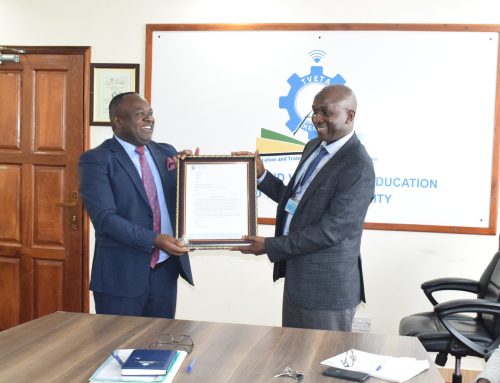The Principal Secretary for Vocational and Technical training Dr. Julius Jwan Ouma has called on the East Africa region to harmonise its qualification framework so as to allow for easier mobility of students and skilled workforce in the region.
Speaking during the closing ceremony of the East Africa Skills for Transformation and Regional Integration Project (EASTRIP) meeting at a Nairobi hotel, the PS said the government’s focus in the next phase of the 100 percent transition to secondary is to ensure that every student comes out of school with a skill.
“This meeting is coming at the right time because our focus now is to ensure that every learner should have a skill. That is why we happy that TVET Authority is working to ensure that there is quality assurance in skill training. The Kenya National Qualification Authority (KNQA) has also developed a qualification framework that allows for various learning pathways and skills development,” Dr. Jwan said.
The three-day meeting brought together Chief Executive Officers and experts from Technical and Vocational Education and Training (TVET) Authorities from Ethiopia, Kenya and Tanzania to kick start the process geared towards harmonisation of curriculum, qualifications and occupational standards, among the three countries.
During the meeting, the TVET Authority Director General Dr. Kipkirui Langat said the Authority has already developed a Quality Assurance Framework (QAF), which is ready to share for adoption in the region.
“The framework addresses six key areas of governance, infrastructure and equipment, trainee support, human resource, curriculum delivery and assessment; and research and innovation. We are ready to share the framework with other players and see whether it can be adopted within the region,” Dr. Langat said.
The regional meeting is supported by the East Africa Skills for Transformation and Regional Integration Project (EASTRIP) funded by the World Bank.
The broad objectives of the project are to increase access and improve the quality of TVET programs in the selected 16 Regional Flagship TVET Institutes and to support regional integration.


